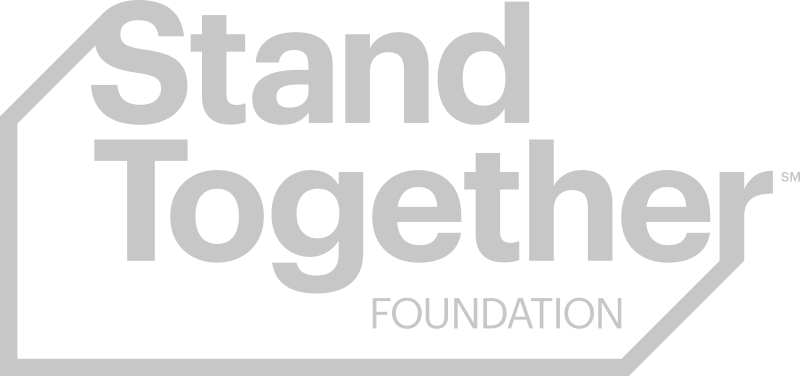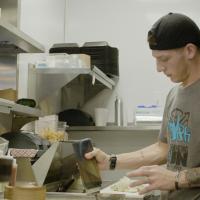Donyae Wyatt, a high school student in Baltimore, MD, had been dealt a rough hand. As a teenager, Donyae lost his grandmother and grandfather — his legal guardians — and quickly started slipping in school. It looked like he wasn’t going to graduate.
Thankfully, around that time he became part of a “Thread Family” that gave him the additional support he needed to succeed in school and in life.
Thread is a Baltimore-based nonprofit created in 2004 by a husband and wife team, Sarah and Ryan Hemminger. Thread brings together members of the community so that they can create a support network — like a family — for Donyae and other Baltimore students.
Broken System
Many high school students, like Donyae, are struggling with circumstances that make it difficult to achieve success in school. Donyae lives in Baltimore, Maryland, historically one of the most violent and impoverished cities in the country.
There, only 6% of kids with less than a 1.0 GPA are likely to graduate in 4 years.
While the state’s four-year graduation rate has been increasing –– it was 86.8 percent in 2020 according to the Maryland State Department of Education — “students of color and students from low-income families are still trailing national averages and continue to be overrepresented in schools where less than half of students graduate from high school.”
These students were hit particularly hard during COVID-19, which exacerbated existing inequalities in healthcare and access to technology.
“A lot of our society has given up on our young people by 9th grade,” said Sarah, who noted that traditional youth empowerment programs don’t go far enough. Many typical programs last for just one school year.
But “building trusting relationships takes a long time,” she said.
Her approach is to help students build their own social capital, and to create an interconnected support system for them in the city.
How it works
At six high schools across Baltimore, Sarah and her Thread team enroll a cohort of freshmen who are academically performing in the bottom 25% of their class.
Thread then connects each student to a group of adult volunteers who come from a wide range of backgrounds. Some are university students, others are young professionals, and there’s also retirees or empty nesters from the area.
Typically 4 volunteers are matched with one student; and together, they create a “Thread Family”. The Thread volunteers support the student in everyday life tasks and achieving their goals, not just academics. They’ll help renovate a student’s apartment, attend sporting events, or drive them to school.
But it’s not just the students who are supported — Thread is transforming the lives of volunteers, too.
“Each Thread Family has a ‘Head of the Family’ who works with the volunteers. Their job is not to worry about the student,” Sarah explained. “Their job is actually to worry about whether the volunteers are doing well in their own lives. This helps ensure the consistency of adults in a child’s life.”
Supporting the adult volunteers benefits the students — the Thread families are more likely to stay together. Many opt to stay together for 10 years, said Sarah.
“I think a 10-year time frame is important, first and foremost, because our kids are behind. Our students have often failed multiple grades coming into high school. There’s a lot of catching up to do,” Sarah told Freethink.
While volunteers are only asked to commit to one year of the full 10-year period, many of them do decide to return –– there’s a greater than 75 percent retention rate, Sarah said, “because so much is put into supporting the volunteers in their own endeavors.”
“The relationships are transformational for everyone involved.”
Sarah Hemminger
These relationships are the key to success, Sarah said. And she’s right: According to a recent study by the Everyone Graduates Center at Johns Hopkins University on City Year, which is influenced by similar philosophies, academic growth is linked to social-emotional growth.
Growing the family
To date, the Thread community has grown from 15 students and a handful of volunteers to 655 students and alumni and more than 3,000 volunteers and collaborators across the city.
Most of these families depend on persistent volunteers, like Alexa and Saba, Donyae’s Thread family. These relationships may not come easy: there was a period of 9 months when Donyae would avoid both women. But Alexa and Saba never gave up.
“I think he started realizing I wasn’t going away,” said Alexa.
“She’s someone who doesn’t give up,” Donyae smiled. “I appreciate that.”



